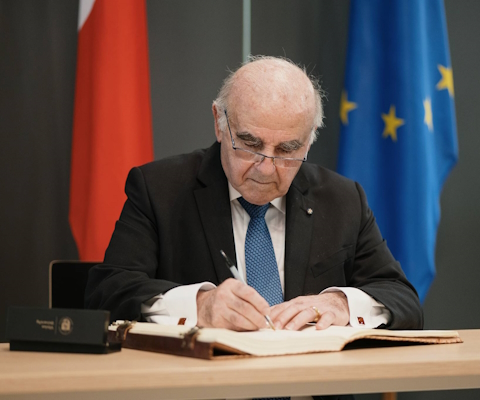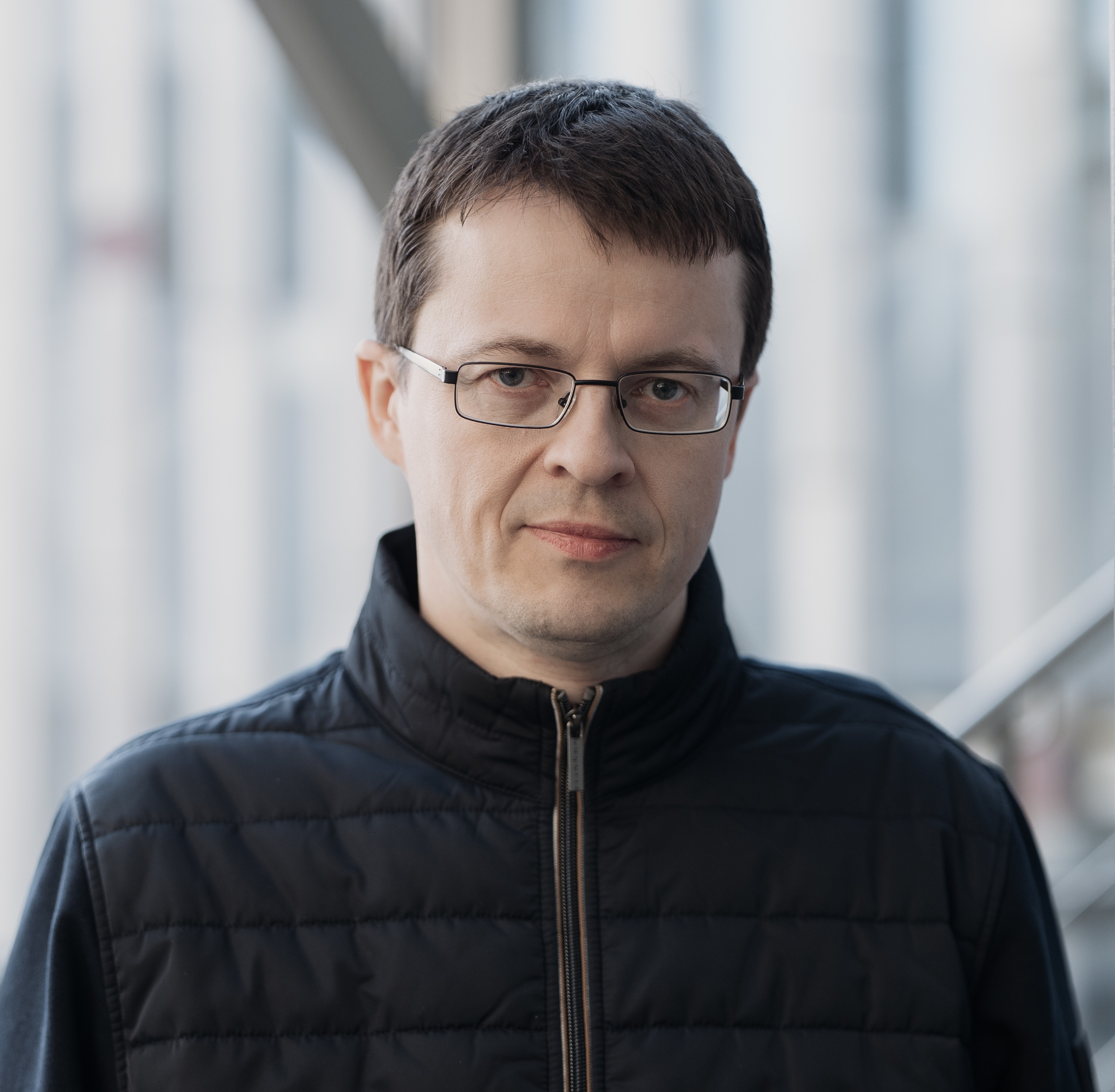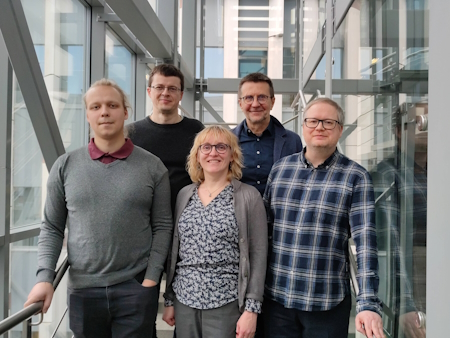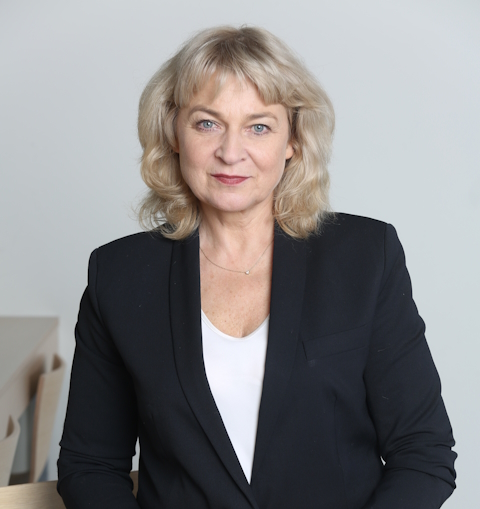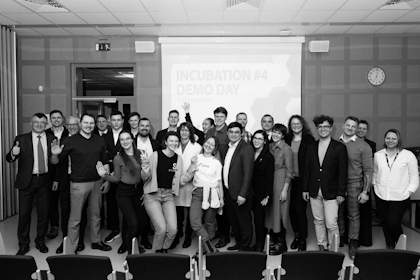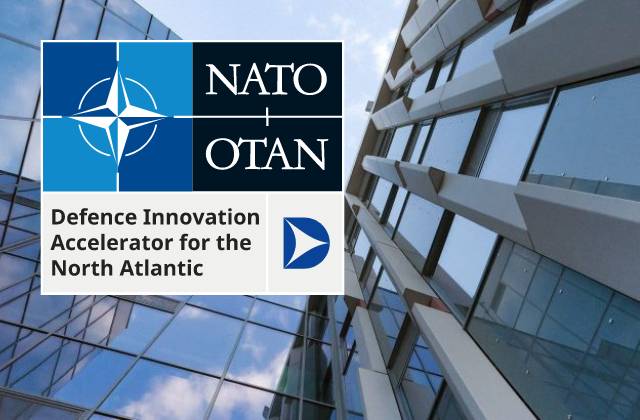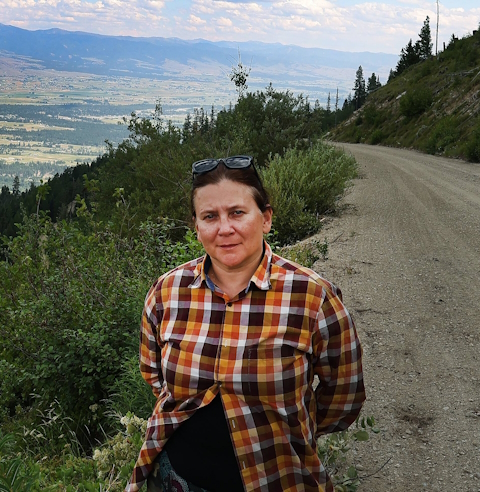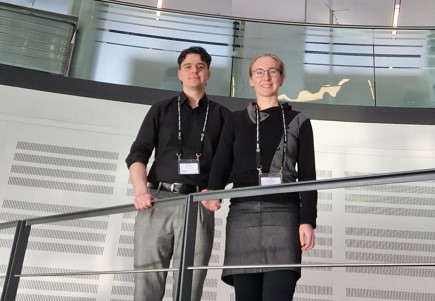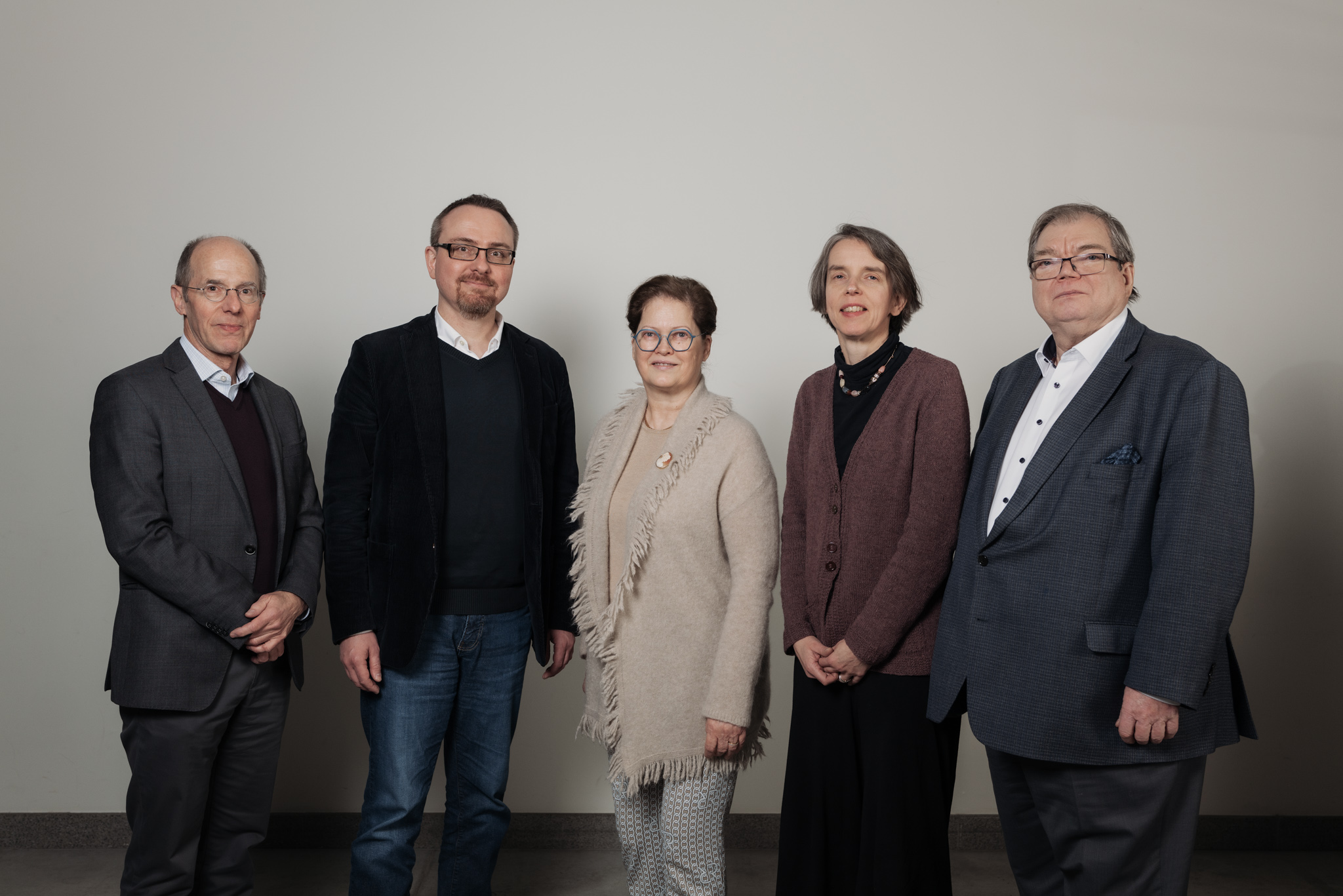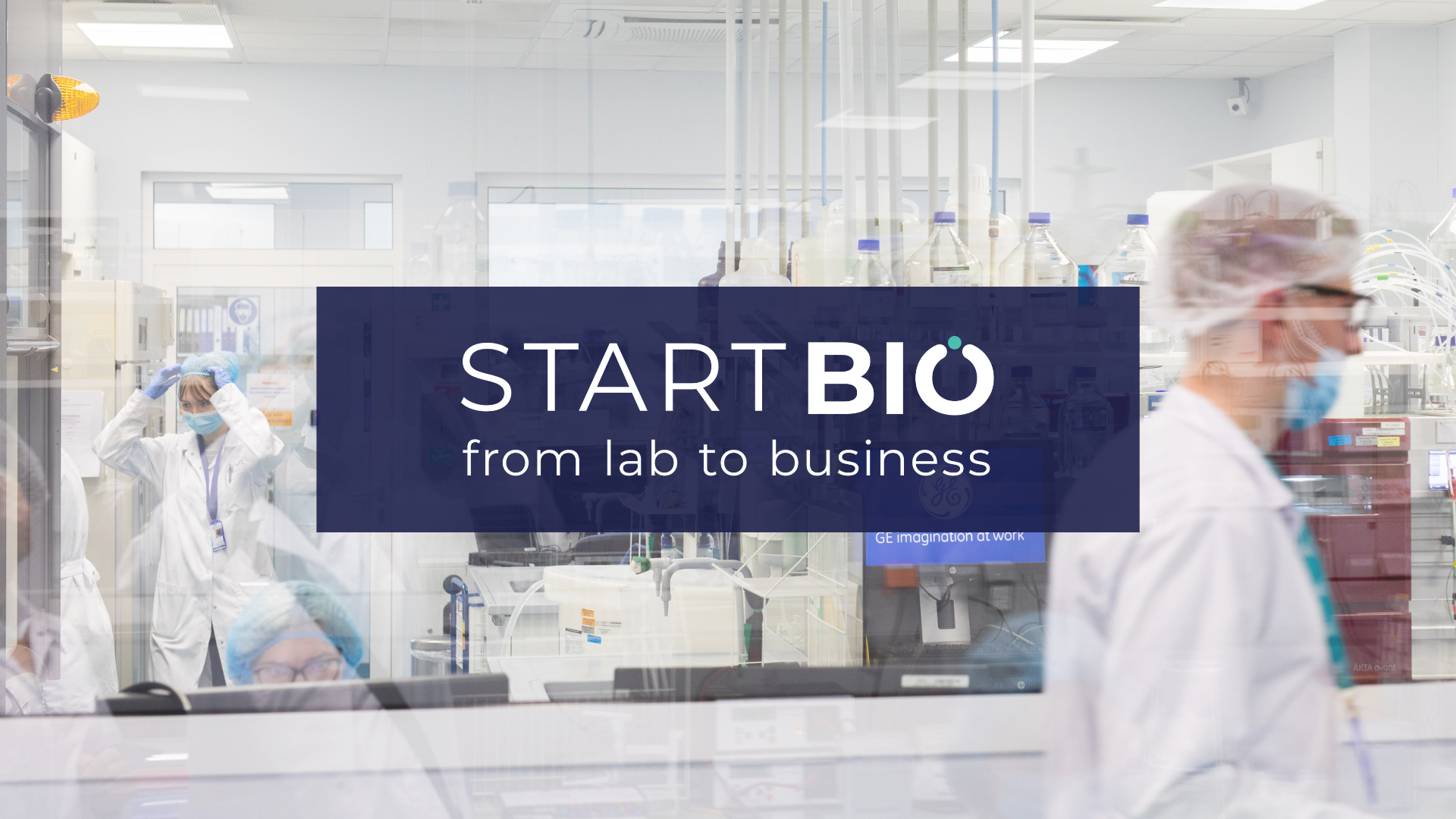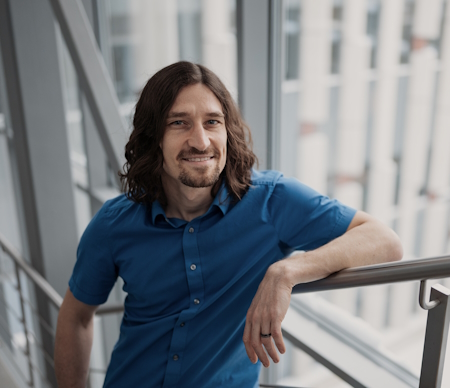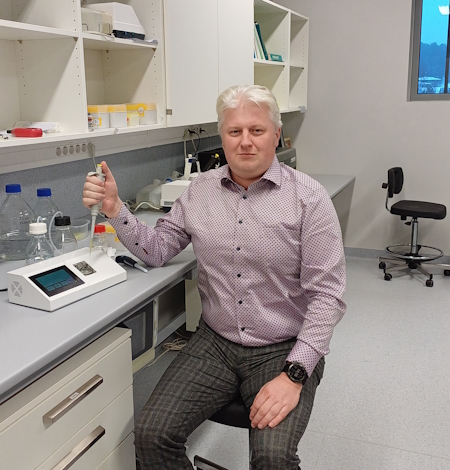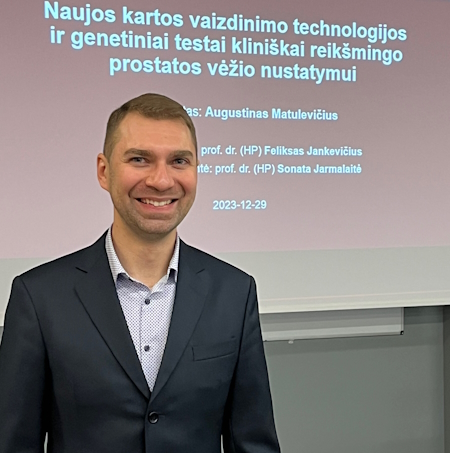Maltese President Dr. George William Vella Visited VU LSC
The President of the Republic of Malta, Dr. George William Vella, together with an official delegation, visited the Life Sciences Center (LSC) of Vilnius University. The President met with VU Vice-Rector and Pro-Rector for Research, Prof. Edita Sužiedėlienė, VU Life Sciences Center researchers Prof. Virginijus Šikšnys, Dr. Urtė Neniškytė, and Prof. Eglė Lastauskienė, Chairwoman of the Vilnius University Senate and Director of the Institute of Biosciences at the VU LSC. Prof. Eglė Lastauskienė presented the Center, studies as well as the areas of research conducted.

